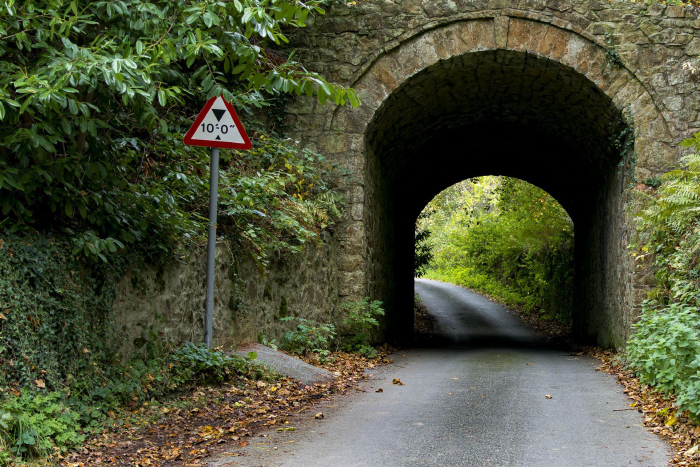Drivers of large vehicles are being warned that failure to plan routes to avoid low bridges may result in serious dangerous driving charges.
Motor safety experts at Snooper are urging drivers to know the size of their vehicle and the location of any low bridges before heading out onto the road.
Drivers of high-sided vehicles that fail to plan their journey and carry out the appropriate checks run the risk of losing their driver and operator licences at a minimum.
Most cases of a vehicle striking a low bridge will be considered dangerous driving by the Crown Prosecution Service and significant charges will be brought.
In cases where death or serious injury is caused due to the collision, disqualification would be mandatory and in very rare circumstances a prison sentence would be handed down.
According to data from the Road Safety and Standards Board, 43% of lorry drivers admit to not knowing the size of their vehicle, while 52% admit to not taking low bridges into account when planning their journeys.
The latest annual figures show that a vehicle strikes a low bridge in the UK five times a day on average, with 1,833 bridge strikes reported.
Each bridge strike costs £13,000 on average in repair and delays costs that the driver’s employee could be liable for.
With bridge strikes costing the UK taxpayer £23 million pounds each year, road safety technology provider Snooper is supporting initiatives to increase awareness of the problem.
They are appealing to drivers and operators to take the necessary steps to ensure that vehicle sizes are recorded and routes are planned so drivers are aware of any low bridges en route.
With March being a peak month for bridge strikes in the UK it is important that drivers of high-sided vehicles are conscious of the risks and what they can do to stay safe.
Gary Digva, founder of Snooper said: “Bridge strikes are a pertinent issue for a majority of drivers and decision-makers, however, many other day-to-day challenges can take priority.
“HGV drivers and operators usually have to handle customer demands while juggling both economic and time pressures.
“This means that bridge strikes are not always front of mind with many incidents being put down to driver error, but they are entirely avoidable.
“Not taking the time to understand the height of a vehicle can lead to a lot of issues for various parties.
“Striking a bridge can place drivers, pedestrians, rail staff and the travelling public in danger, while costing the UK taxpayer millions each year.
“Drivers and operators can be severely impacted by costs, bans and serious criminal charges in the most severe cases.
“It is therefore vital that truck drivers pay attention to the height and the width of their vehicle and plan routes accordingly to avoid bridge strikes.”

COMMENTS